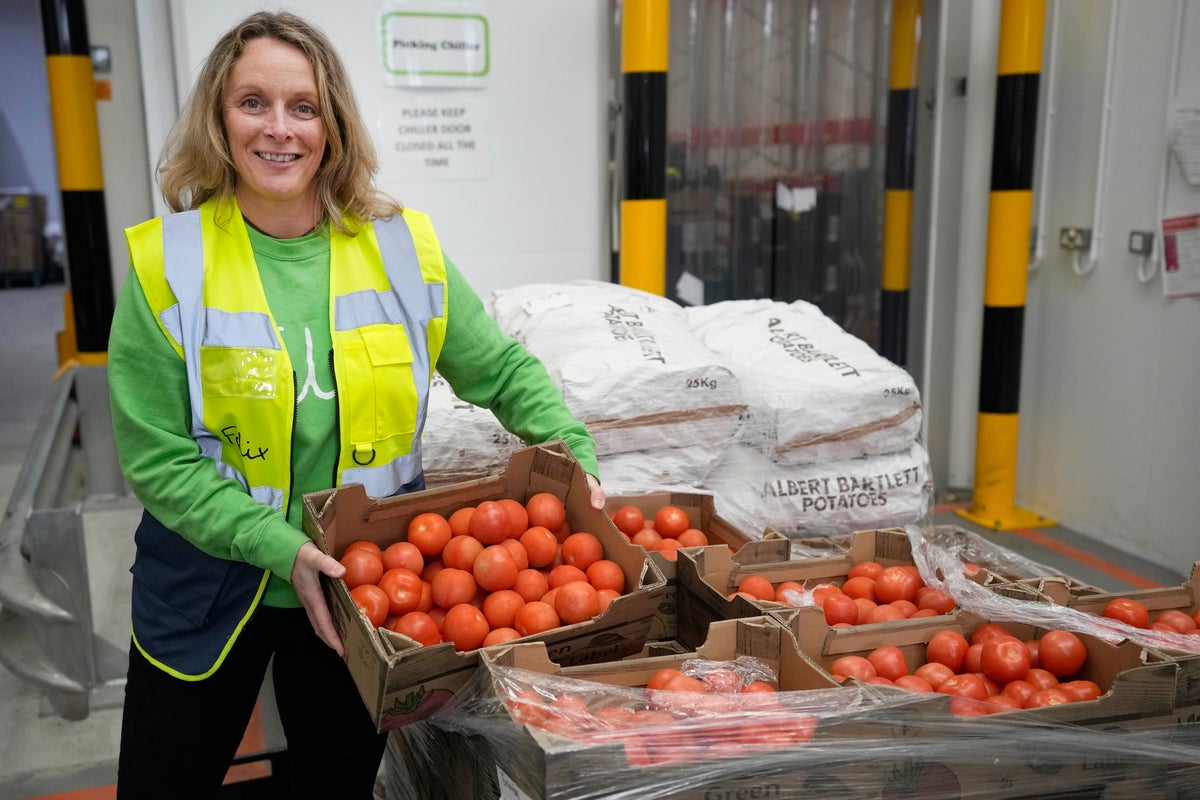
Fixing Britain’s “crazy” food waste problem can help halt the rise in the number of people going hungry during the cost of living crisis, a charity leader has said.
Justin Byam Shaw, founder of the food surplus charity The Felix Project, called on the industry to step up efforts to stop so much produce getting thrown in landfill or burned.
The Felix Project picks up surplus food from restaurants, caterers and manufacturers and gives it to hundreds of food banks, care homes and school projects – delivering 30 million meals across London last year.
The entrepreneur said the charity wanted to do even more because food poverty was “getting worse”, as a rising number of people skip meals to pay their soaring bills.
“It’s bad and obviously it’s getting worse,” Mr Byam Shaw told the Money Maze Podcast. “There’s been big food price inflation this year, and yet food sales have dropped. So that tells me not only are people trading down, but people are going without.”
He said: “We’re hearing this anecdotally a lot from the thousand charities and schools that we supply to. So this is going to get a lot worse this Christmas.”
Some 2.9 million tonnes of produce is wasted by the food industry each year, according to 2021 analysis by the Waste and Resources Action Programme (WRAP) organisation.
Despite increasing amounts going to groups like The Felix Project and FareShare in recent years, only 7 per cent of edible, surplus food in the UK supply chain gets redistributed by charities.
“That means 93 per cent ending up in landfill, getting burnt or in anaerobic digestion plants, which becomes fertiliser for crops rather than feeding people. And that is wrong economically, wrong socially, wrong environmentally,” said Mr Byam Sham.
He added: “It is completely crazy and it has to change. There are some food companies that are taking this seriously, measuring their waste and trying to do something about it, and others, frankly too many, that are not.”
Mr Byam Shaw, who is a shareholder in The Independent, said there was still a “massive mismatch in supply and demand” when comes to the UK’s food chain.
He pointed to the voluntary Courtauld Commitment 2030, which has seen hundreds of food companies agree to half the amount they waste by the end of the decade.
“Only 25 per cent of the food sector by value has signed up to that … something has to change in this country and, in fact, globally,” said the entrepreneur.
The Felix Project rescued and redistributed almost 13,000 tonnes of surplus food last year, enough to make more than 30 million meals – up more than 70 per cent since 2020.
But the charity is planning to scale up further by picking up more food from farms. A new farm app allows farmers to let The Felix Project and others know when and where they have surplus produce.
Mr Byam Shaw added: “I’m not, by the way, in the business of disaster-mongering – that’s really not what I want to do. Actually, as a note of optimism, I believe food poverty in this country is totally solvable, if we can sort out food surplus food waste, then we can solve that problem.”
The Independent in partnership with the Evening Standard won campaign of the year at the 2021 Society of Editors awards for its joint appeal to help feed Britons struggling to access food during the Covid crisis.
The award was given to the Help the Hungry appeal – which raised more than £10m for The Felix Project, helping supply more than 20 million meals during the pandemic.







